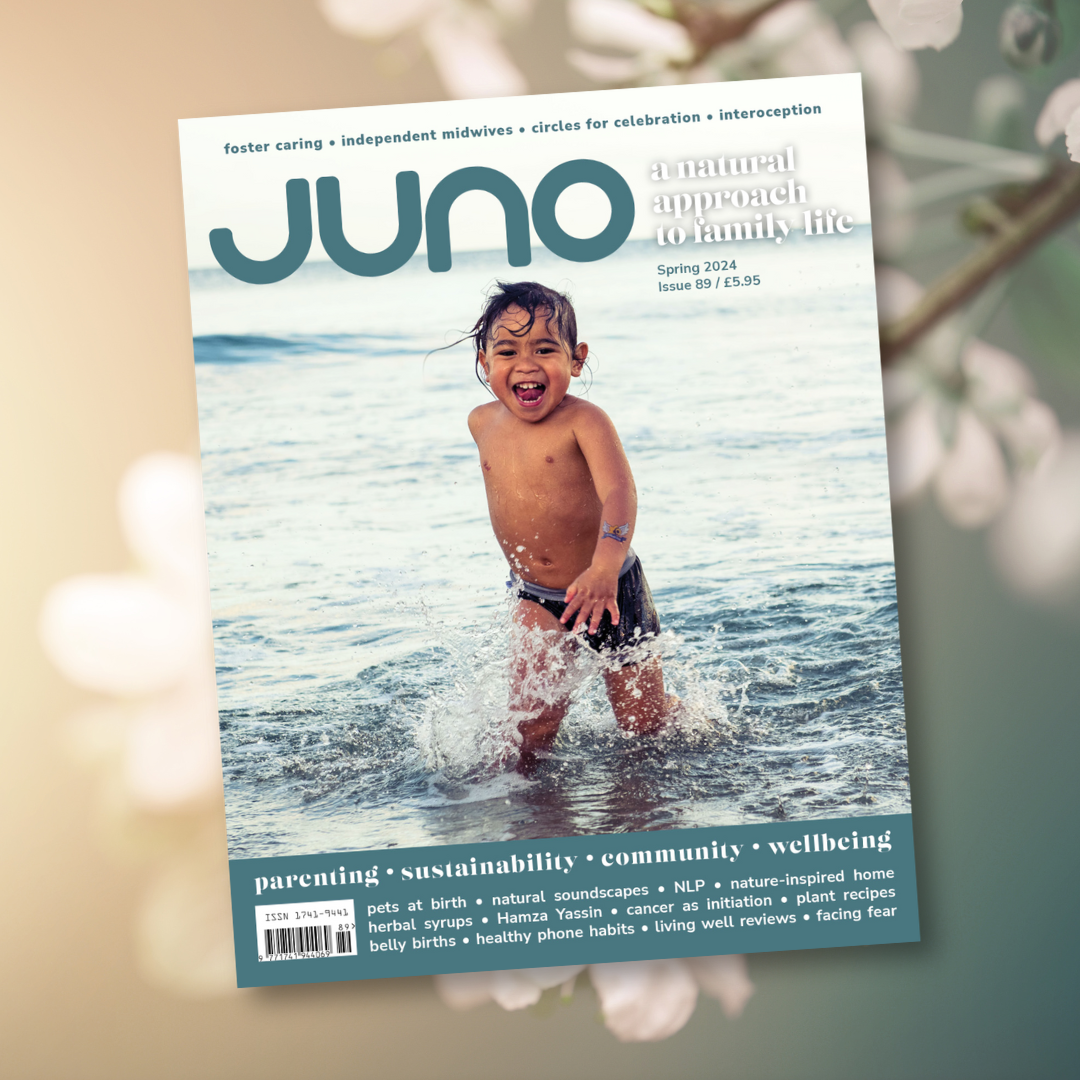Priya Mahtani helps us to understand our teenagers
Sauntering down the stairs, modelling her new purchase, my daughter appeared in ripped denim shorts and a white cropped top. My heart skipped a beat. Just days before her 13th birthday, and the results of her first ‘solo’ shopping trip with her best friend, this was certainly a much more grown-up expression of her newfound interest in her appearance.
Admittedly she looked gorgeous. Her big brown eyes stared at me, slightly curious and full of sass – I could almost hear the song ‘This is Me’ from The Greatest Showman playing in the background.
“Oh, wow,” I said with a grin. “What on earth have you done with my daughter?” It was official. My sweet, angel girl had turned into a teenager.
There are countless defining moments in our parenting journeys. Babies become toddlers, and children turn into teenagers, seemingly overnight. Just as you get a handle on one stage of your child’s development, they go changing all over again. If you’re wondering if you will fall into the abyss of teendom, don’t panic. Take a breath. Parenting is a never-ending loss of identity, as we have to reinvent ourselves from one stage of our children’s development to the next.
It can be a bit of rollercoaster. You might find yourself floundering in a quicksand of panic as you’re searching for answers about what style of parenting actually works for teens. To help me work through this, I recently interviewed more than 25 parents and teachers of teens, including a handful of parenting experts. What they said was surprisingly reassuring and enlightening – simple to understand, yet less easy to master.
The Teen Brain
First, educate yourself about what exactly is going on in your teenager’s body and brain. Wild mood swings and erratic behaviour have a context. In her brilliant TED talk, ‘The Mysterious Workings of the Adolescent Brain’, neuroscientist Sarah-Jayne Blakemore shares how, in the last 15 years, brain imaging technology has brought a whole new understanding about the ways in which the adolescent brain is anatomically, physically, chemically and biologically different from the adult one. Did you know that adolescent brain development starts at 10 years old, and that the prefrontal cortex (the logical, rational, thinking part of your brain that makes decisions to keep you safe and consider the consequences of your actions) is not fully developed until you are approximately 25 years old?
This also accounts for why it’s so difficult for teenagers to make decisions quickly. Their prefrontal cortex is simply not developed enough yet. As the centre for self-regulation, it’s also the part of the brain that helps to bring emotions into balance.
Flooded with messages from hormones, the information highways in the adolescent brain are in a process of tremendous reconstruction, as some pathways are rerouted at speed (myelination) and others are closed down (pruning). A large part of an adolescent’s brain activity takes place in the fight-or-flight responses of the deepest part of the brain – the limbic system. The walnut-shaped amygdala, which sits in the centre of the brain, matures much earlier than the prefrontal cortex. It is sometimes known as the pleasure centre and is also the part that often reacts more strongly to bigger events than to smaller ones, which is why teenagers get a buzz from taking risks – think experimentation with sex, drugs and alcohol, to mention but a few – and is also where fear is measured.
Biologically speaking, it’s simply not easy for our teenagers to manage their emotions. It’s no wonder that they blow small things out of all proportion and can become highly reactive, with feisty responses and behaviours. Cue “I hate you. You’re the worst mother ever,” followed by a loud, stomp, stomp, stomp upstairs and punctuated by a door slam. You might be forgiven for thinking you’ve entered a teen spoof, but it’s an all too familiar scene for many parents.
Teen Behaviour
Secondly, know that your teenager is not their behaviour. Sometimes argumentative, they talk back, can be self-centred and ungrateful, push boundaries, overreact, don’t do what they’ve been asked, and can be unkind, shout or scream. (Of course, they can also be kind, thoughtful, tender, sweet, reflective and insightful too – but usually in smaller doses.) Teenagers have much in common with toddlers, and their behaviours are just the tip of the iceberg of their hidden unmet wants and needs as they seek to make sense of the world both around them and within them. Unlike toddlers, however, teenagers are lost at sea in a world in between child and adult.
What do they most need? Like all of us, they need connection, love and support. They need to be heard and seen for who they are. Having taught teenagers for over 25 years, Julian Paine suggests simply letting your teenager pour out their list of complaints to you. I tried this with my daughter and was surprised by all the things that came out like a torrent of pouring rain onto the parched earth. I had to resist the urge to defend myself in places or ‘fix‘ issues she’d raised. My job was simply to listen. The relief in her afterwards was palpable, as if all those things she’d been holding on to were taking up far too much space in her inner emotional landscape.
Teenagers fear being socially excluded and not fitting in, and, unlike previous generations, they are forced to see every part of their lives documented and posted online. Mistakes they make, thoughtless remarks spoken in a rash moment, stored digitally in perpetuity. The world our teenagers inhabit is in some ways dramatically different from the one we were brought up in. The pressures on them are enormous. Even if they don’t have a helicopter parent, our teenagers have less freedom and space to just be and daydream. Remember the days when we used to roam around freely until it was time to come home for dinner? Compare that to today’s teenager, whose every move is often micro-managed by parents busy worrying about what they’re doing or who they’re doing it with.
Your role as a parent is to just be there. No matter what. Hold that space and do not impose your will upon your teenager. Talk less. Listen more. Boundaries are important. Boundaries tell your teenager that no matter their anger, rage, fury, upset, despair, confusion, doubt or hurt, you are still there.
In The Letter Your Teenager Can’t Write You, psychologist and author Gretchen Schmelzer writes:
“I need to hate you right now and I need you to survive it. I need you to survive my hating you and you hating me. I need this fight even though I hate it too. It doesn’t matter what this fight is even about: curfew, homework, laundry, my messy room, going out, staying in, leaving, not leaving, boyfriend, girlfriend, no friends, bad friends. It doesn’t matter. I need to fight you on it and I need you to fight me back… I need this fight and I need to see that no matter how bad or big my feelings are… they won’t destroy you or me. I need you to love me even at my worst, even when it looks like I don’t love you. I need you to love yourself and me for the both of us right now… This is the fight that will teach me that my shadow is not bigger than my light. This is the fight that will teach me that bad feelings don’t mean the end of a relationship. This is the fight that will teach me how to listen to myself, even when it might disappoint others. And this particular fight will end. Like any storm, it will blow over.”1
Love Your Teen, Love Yourself
Finally (and of course there’s a lot more to be said about this and about parenting teens in general), as Julian Paine shares, “Be prepared for them to be with you as you’ve been with them.” Whatever you’ve modelled to your teenagers throughout their childhood is exactly the kind of behaviour and communication style you can expect reflected back during their teenagehood. Maybe that’s one of the reasons parenting is so confronting. Our children and teenagers mirror back to us our own behaviours and attitudes. It’s not an easy job. Each interaction with your teenager is an opportunity for you to put into practice the deep love that you have for them. Remember the magical moment you held your baby in your arms for the very first time? That precious connection remains.
As an adult, you have a responsibility to get support when you need it. Find a community of like-minded parents with whom you can honestly and authentically share your stories. Safe spaces listening to parents with whom you share similar values can help you realise that your stories are not so different from anybody else’s. With our increasingly isolated lifestyles, often living away from family and communal support structures, it can be lonely out there.
Taking care of our own emotional needs is key to helping model to our teenagers how they can take care of themselves. It’s a bit like being on a plane, when they tell you to put on your oxygen mask first before helping others. If you want to not only survive adolescence but also truly thrive, your best hope is to be a fully healthy you.
Surviving adolescence is really about knowing yourself. The more aware you become of your emotional triggers and the places and spaces in your life where you become reactive and defensive, the more nourishment and safety you offer your adolescent as you teach them by example how to modulate their own emotions and behaviours. Your teenager doesn’t need you to be perfect. They just need you to be real. We all have a deep, core human need to be seen, heard and felt by those around us.
Your teenager is no different. They need your love and support now more than ever. Just with a bit more space.
____
Priya Mahtani is a writer and consultant and a mother of two teenagers. She has a passion for supporting individuals and organisations to communicate more effectively by deepening authentic connections and speaking from the heart. She is also the creator and founder of Festival of the Child, a global online summit taking place this November, empowering parents and educators to help children thrive. festivalofthechild.com
Reference
- These words are shared with kind permission. Read more at tinyurl.com/gretchen-schmelzer-letter.
____
First published in Issue 63 of JUNO. Accurate at the time this issue went to print.



